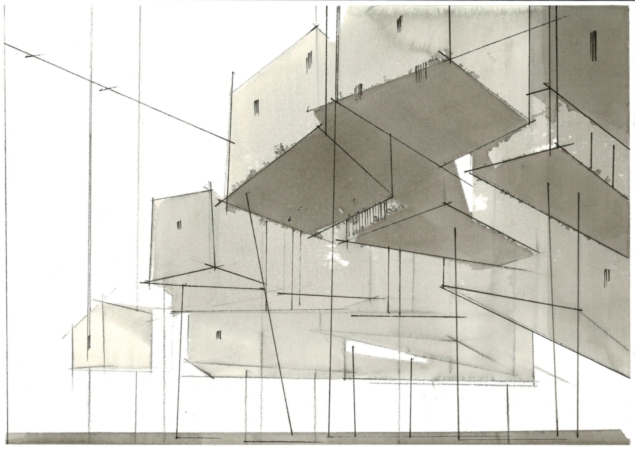In the first concert of the Phantasmal Peace series conductor Fyodor Lednev together with Speech Ensemble continues the review of great symphonic works of the turn of the nineteenth and twentieth centuries, which began at
Tree of Life
- Date:
- 10 Sep 2024,
20:00–21:30
- Age restrictions
- 12+
Programme
Gustav Mahler (1860–1911)
Symphony no. 1 in D major (1888)
arranged for chamber orchestra by Klaus Simon
Performed by
Fyodor Lednev Conductor
Speech Ensemble
The shortest of the nine symphonies by Gustav Mahler (1860–1911) lasts for just under an hour, while the longest takes around one hundred minutes to perform. The Austrian composer pushes the “symphonic time” of late nineteenth—early twentieth century European music to the limits of what human perception can bear. As the contemporary composer Anton Svetlichny says, “to write a symphony longer than those of Mahler using only classical-romantic technology is inconceivable because it would be impossible to listen to.”

Illustration: Danila Travin
The First Symphony (1888), while being the most “laconic” of the nine, establishes the coordinate system for all of Mahler’s later music. The megalomania of the composer’s mature works, in which, as he himself put it, “the universe sounds and rings, the planets and suns spin,” is already audible in his first attempt at symphonic form. And yet the epic scale of the narrative is extremely personalised: Mahler made no secret of the autobiographical subtext of the First Symphony, frankly admitting in a letter to a friend that it “was born out of a love episode of its creator.” Paradoxically, the outsize symphonic form emerges from the most intimate of musical genres—that of song—since the First Symphony is based on material from Mahler’s early vocal cycle Lieder eines fahrenden Geselles (“Songs of a Wayfarer,” 1884–1893), whose lyrical hero, in Mahler’s words, “has been stricken by fate” and “sets forth into the world, travelling wherever his road may lead him.”
Containing material composed as early as 1884, the First Symphony was still undergoing changes in the late 1890s. An early version of the work bore the subtitle “Titan,” taken from the 1803 novel of the same name by the German romantic writer, Jean Paul. The subtitle was removed from later versions, but Jean Paul’s storyline—telling of the affinity with nature of a naive, sentimental young man and his tragic collision with everyday reality—remained intrinsic to the Symphony. The ringing silence of the first movement (the score is marked “Wie ein Naturlaut,” “like a sound of nature”) contrasts with the emphatically profane, reduced musical language of the third movement, which stands out as one of the earliest examples of collage technique, anticipating the polystylism and intertextuality of twentieth-century music.
Mahler’s First Symphony formulates the concept of the “novel in sound,” where narration prevails over construction. The composer remained faithful to this approach in all of his later symphonies.
You can buy a ticket to this concert in advance at a discount. Ticket prices will increase closer to the date of the event.
Fyodor Lednev (b. 1971, Minsk) is a conductor. He graduated from the Saint Petersburg Conservatory specialising in choral conducting (1995) and opera and symphonic conducting (1998). Since 1995, he has taught at the Saint Petersburg Rimsky-Korsakov Music College. He has appeared as guest conductor with leading Russian orchestras, including the Svetlanov State Orchestra, the Russian National Orchestra, the Russian National Youth Symphony Orchestra, the musicAeterna Choir and Orchestra, and others. He has been the resident conductor of musicAeterna since 2019.
9–25 Aug: 1400 rubles
26 Aug 26–1 Sep: 1500 rubles
2–4 Sep: 1600 rubles
5–10 Sep: 1700 rubles
The cost of a discounted ticket is always 750 rubles.

